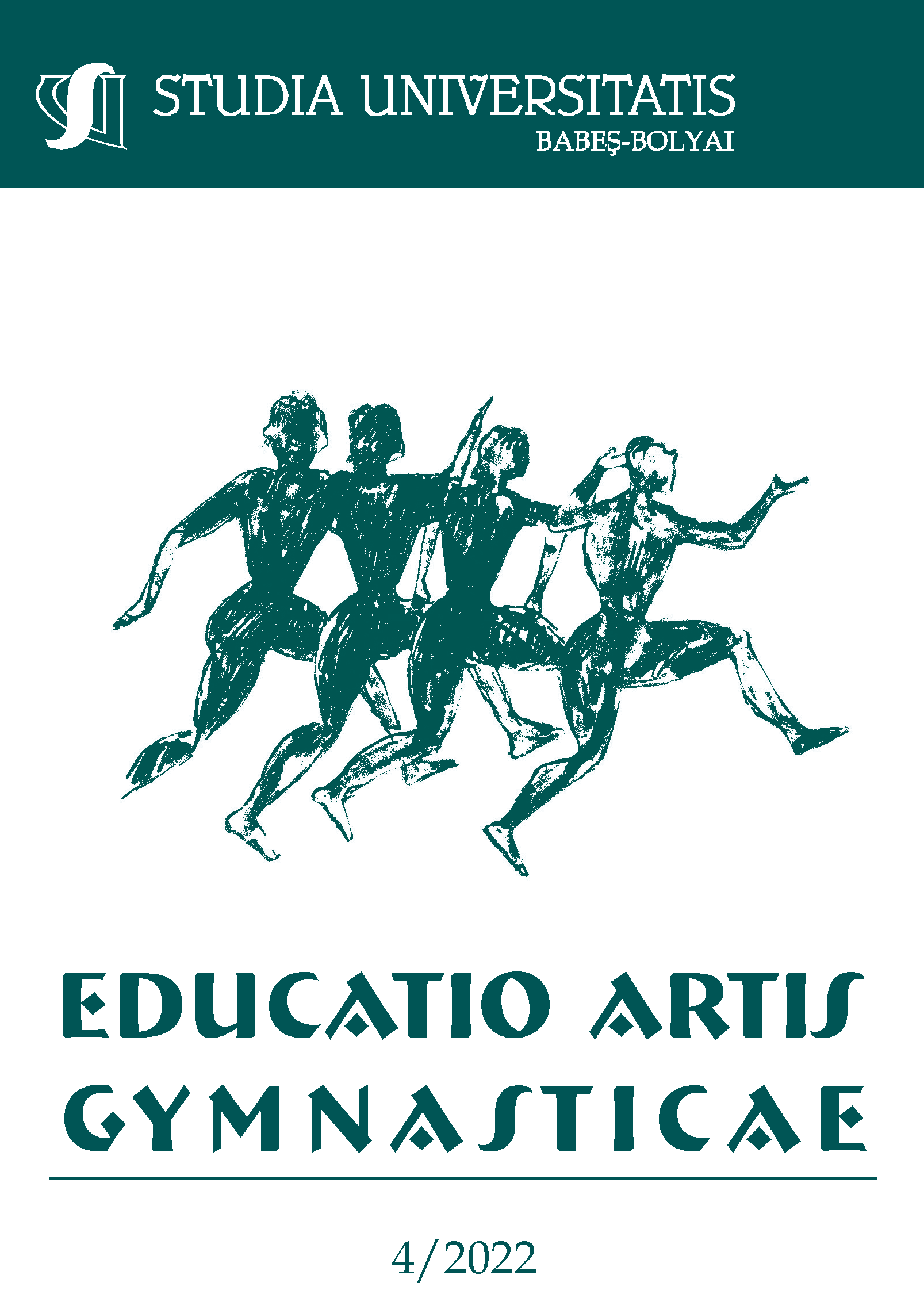TREATISE ON TRIBALISM AND MYSTICISM IN SPORT: MOS MAIORUM VS. LEX NON SCRIPTA
DOI:
https://doi.org/10.24193/subbeag.67(4).40Keywords:
tribalism, sport, philosophy, group interest, moralityAbstract
There is a belief that tribalism and mysticism have no major role to play in current sport performance environment. Consequently, sport visions are implemented based upon the intrinsic recommendations of the system itself. However, a deeper investigation of the inter-human interactions on a group level of the world of sports may offer another way of understanding the complexity of human-to-group interrelation in our field of study. This paper examines the literature relating to tribalism from a sociological, psychological and philosophical point of view and its relevance to the world of sport. A better understanding of how group identity, traditions and unwritten laws shape the community’s morality judgments can lead to a more rational and healthier way of undertaking reforms of policies.
References
Ackerman, D. (1997). Deep Play. Ed. Vintage.
Cova, B., and Cova V. 2002. The tribalization of society and its impact on the conduct of marketing. European Journal of Marketing.
Csikszentmihalyi, M. (1975). Beyond Boredom and Anxiety. Ed. Jossey-Bass.
Dixon, N. (1999). On winning and athletic superiority. Journal of the Philosophy of Sport, 26(1), 10-26. DOI: 10.1080/00948705.1999.9714576.
Dixon, N. (2000). The inevitability of disappointment: reply to Feezell. Journal of the Philosophy of Sport, 27(1), 93-99. DOI: 10.1080/00948705.2000.9714592.
Feezell, R. (1986). Sportsmanship. Journal of the Philosophy of Sport, 13(1).
Gabriel, Y. & Lang, T. (2006). The unmanageable consumer, 2nd edition, Ed. Sage.
Gaffney, P. (2018). Moral Victories. In: Morgan W. (Ed.). Ethics in sport (3rd Ed.). Ed. Human Kinetics. pp. 193-204.
Goulding, C., Shankar, A. and Canniford, R. (2013). Learning to be tribal: Facilitating the formation of consumer tribes. European Journal of Marketing, 47(5/6): 813–832.
Green, B. (2001). Leveraging subculture and identity to promote sport events. Sport Management Review, vol. 4, no. 1, pp. 1-19.
Herrigel, E. (1999). Zen in the Art of Archery. Ed. Random House.
Jurisic, B., and A. Azevedo. 2011. Building customer-brand relationships in the mobile communications market: The role of brand tribalism and brand reputation. Journal of Brand Management, 18(4): 349–366.
Keating, J. (2018). Sportsmanship as a moral category. In: Morgan W. (Ed.). Ethics in sport (3rd Ed.). Ed. Human Kinetics. pp. 111-121.
Luedicke, M.K., and M. Giesler. (2007). Brand communities and their social antagonists: Insights from the Hummer case. In Consumer tribes, eds. B. Cova, R.V. Kozinets, and A. Shankar. Ed. Elsevier. 275–295.
Maffesoli, M. (1996). The time of the tribes: The decline of individualism. Ed. Sage.
Murphy, M. and White, R. (1995). In the Zone: Transcendent Experience in Sports. Ed. Penguin.
Prebish, C. (1993). Religion and Sport: The Meeting of Sacred and Profane. Ed. Greenwood Press.
Ravizza, K. (1984). Qualities of the Peak Experience in Sport. In Psychological Foundations of Sport, edited by J. Silva and R. Weinberg, 452-461. Ed. Human Kinetics.
Ruane, L., and Wallace, E. (2015). Brand tribalism and self-expressive brands: Social influences and brand outcomes. Journal of Product & Brand Management, 24(4): 333–348.
Russell, J. (2018). Play and the moral limits of sport. In: Morgan W. (Ed.). Ethics in sport (3rd Ed.). Ed. Human Kinetics. pp. 205-221.
Sahlins, M.D. (1961). The segmentary lineage: An organization of predatory expansion. American Anthropologist, 63(2): 332–345.
Schouten, J.W., and J.H. McAlexander. (1995). Subcultures of consumption: An ethnography of the new bikers. Journal of Consumer Research, 22(1): 43–61.
Simon, R. (1991). Fair play: sport, values, and society. Ed. Westview.
Veloutsou, C. (2007). Identifying the dimensions of the product-brand and consumer relationship. Journal of Marketing Management, 23(1/2): 7–26.
Downloads
Published
How to Cite
Issue
Section
License
Copyright (c) 2022 Studia Universitatis Babeș-Bolyai Educatio Artis Gymnasticae

This work is licensed under a Creative Commons Attribution-NonCommercial-NoDerivatives 4.0 International License.






